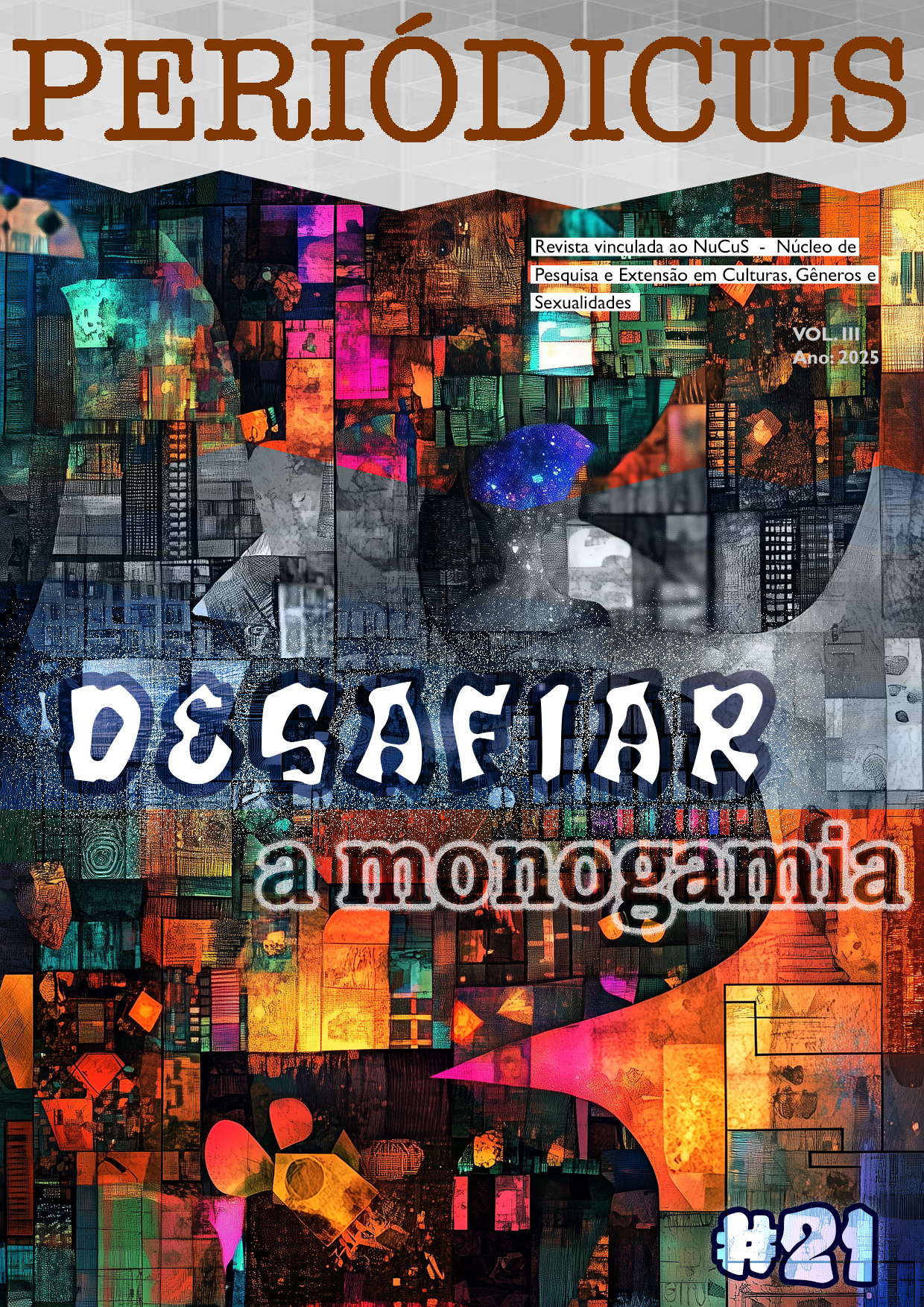Recreational LGBTI+phobia
when violence is disguised as a joke
DOI:
https://doi.org/10.9771/peri.v3i21.63005Abstract
This article, which problematizes recreational LGBTI+phobia and its consequences, aims to discuss how, under the guise of play, recreational LGBTI+phobia reveals prejudices and violence directed at dissident sex-gender bodies. To this end, it uses a qualitative methodology, which interrelates bibliographical research with life narratives, using autobiographical accounts as the corpus of analysis. Based on an anti-colonial and anti-gbti+phobic bias, the discussion shows that the basis of recreational LGBTI+phobia lies in a set of social and gender oppressions, which express multiple forms of violence related to sexual and gender prejudice under the guise of “joking”, “harmless humor”, just as recreational LGBTI+phobia generally appropriates spaces of affection to instill and reproduce violence against the LGBTI+ community.
Downloads
Downloads
Published
How to Cite
Issue
Section
License
Copyright (c) 2025 Wallace Matos da Silva, Rafael Siqueira de Guimarães

This work is licensed under a Creative Commons Attribution-NonCommercial 4.0 International License.
Authors who publish in this journal agree to the following terms:
Authors retain copyright and grant the journal the right of first publication, with the work simultaneously licensed under a Creative Commons Attribution Noncommercial License that allows the work to be shared with acknowledgment of authorship and initial publication in this journal, but prohibits commercial use.
Authors are authorized to enter into separate additional contracts for non-exclusive distribution of the version of the work published in this journal (e.g., publishing in an institutional repository or as a book chapter), with acknowledgment of authorship and initial publication in this journal.
Authors are permitted and encouraged to publish and distribute their work online (e.g., in institutional repositories or on their personal website) at any point before or during the editorial process, as this can generate productive changes and increase the impact and citation of the published work (see The Effect of Open Access).








